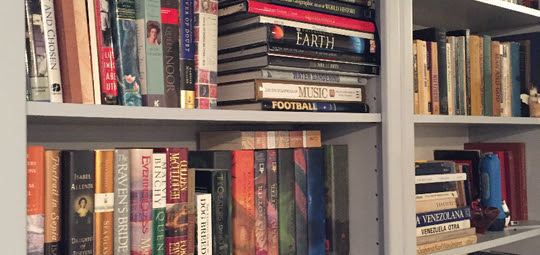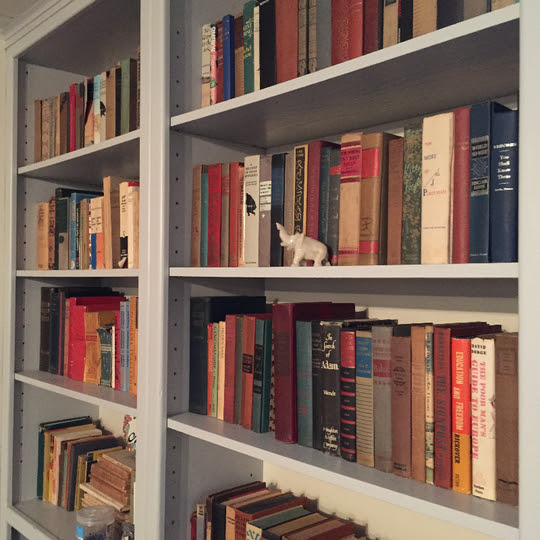We’ve packed and moved enough boxes at CMFTO to know that books can be especially cumbersome.
Ideally, libraries should reflect our passions, but many clients have confided in us that they rarely revisit the books in their library once they’ve read them — or that they haven’t had a chance to read many of their books at all.
So, how do we edit our books to create a library that enhances our lives and homes?

To start, we recommend sorting your books into the following categories:
Next, within each category, consider the following questions for each book:
If you answered “yes” to any of these questions, it makes sense to keep the book. If you answered “no,” it’s probably time to let it go.

In general, we find that collector’s editions, reference/hobby books, and coffee table books are the easiest to deal with. They’re normally hardcovers, and you probably already know which ones serve you best. For example, if cooking is a hobby of yours, you likely have favorite cookbooks you can’t do without. Sorting through and reorganizing your cookbooks, or other specialty books, will allow you to showcase and easily access your favorites.
Paperbacks, on the other hand, can be difficult to store neatly and are often not books we reread or refer to regularly. You might have a cherished paperback or two you’d like to keep, but most of them are probably not worth the storage space.
After you’ve edited both your hardcover and paperback books by category and decided what to keep, what do you do with the ones you no longer want?
We recommend donating your unwanted books to organizations such as the Salvation Army or Goodwill. Local libraries also sometimes accept used books (just be sure to call ahead to confirm), along with national literacy programs. Finally, you can always sell them yourself at a garage sale or donate books to your local rummage sale.
Books can take up an incredible amount of space in our homes, but if you follow our guidelines and start editing your library one bookshelf at a time, you can create and maintain a collection that accurately reflects your passions and hobbies before you know it. What’s more, you’ll avoid having to pack, store, and move countless (heavy!) boxes of books in the future.
All my best,
Claudia